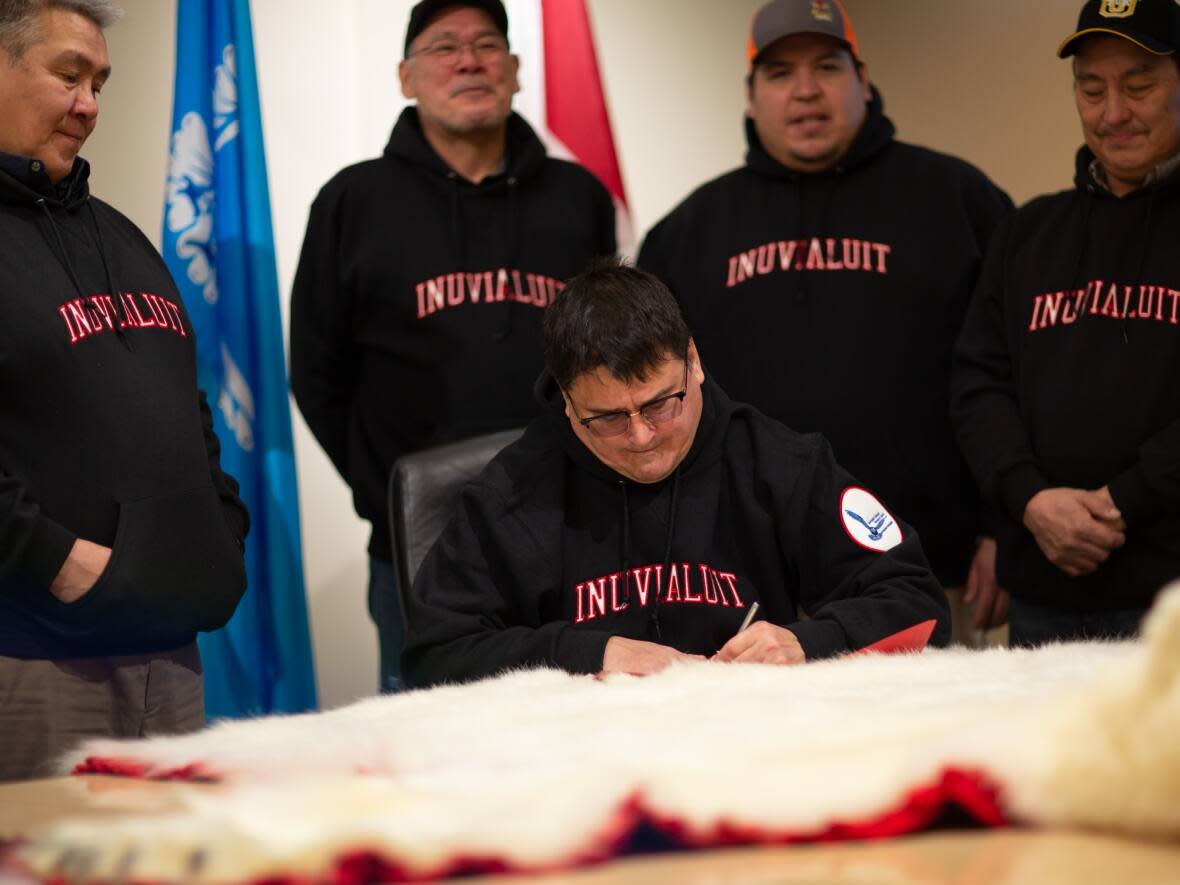N.W.T. gov't joins court challenge of federal law central to Inuvialuit family legislation

The N.W.T. government has joined a Supreme Court of Canada legal challenge of federal legislation it once appeared to support.
Bill C-92, or the Act respecting First Nations, Inuit and Métis children, youth and families, gives Indigenous governments the right to manage their own child and family services. It was passed in 2020 and it paved the way for the Inuvialuit Regional Corporation (IRC) to establish its own laws in 2021 to govern the care of beneficiary children.
At the time, N.W.T. Premier Caroline Cochrane praised the IRC's move as a "big step forward in ensuring decisions are made in the best interests of Inuvialuit children, youth and families."
The Supreme Court of Canada is now hearing arguments in a case brought forward by the Quebec government challenging Bill C-92. The N.W.T. government has joined the case as an intervener. In court documents, its lawyers claim Bill C-92 infringes upon its rights under the Northwest Territories Act.
According to a court document submitted by the territory, Bill C-92 "changes the jurisdiction delegated to the Northwest Territories by the NWT Act and has the effect of undermining the legislative authority of the Northwest Territories."
The move came as a surprise to the IRC. Duane Smith, the IRC's chair and CEO, said the Inuvialuit had been negotiating with territorial counterparts on how to transition to the IRC's new model for family and child care in the region.
"Only recently did they — at one of the very last meetings — they informed us they were doing a 180 on this issue and they were going to be submitting their intervention to the Supreme Court," Smith said.
"It came at the 11th hour … We were negotiating in good faith for ten-plus months, and then at the last moment they did an about turn on us."
Smith said the IRC has asked the territory to withdraw its intervention in the Supreme Court case.
CBC has requested an interview with Cochrane but has yet to hear back on that request.

 Yahoo Movies
Yahoo Movies 
